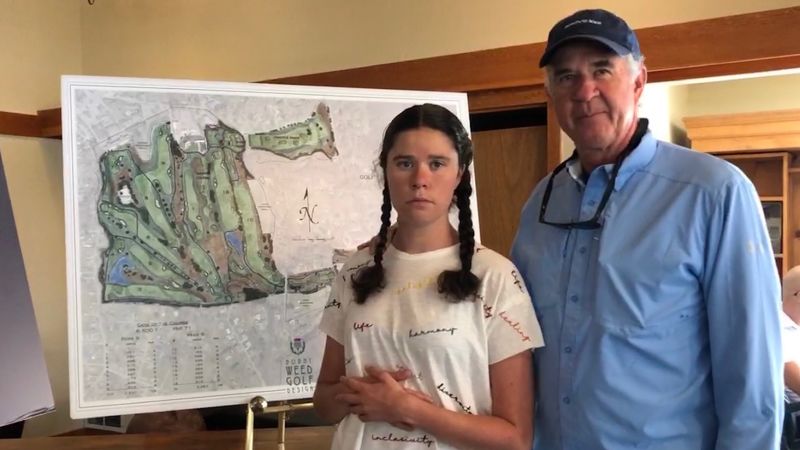
This golf course architect’s daughter was diagnosed non-verbal autistic. Now he’s helping families facing similar challenges
CNN
After Bobby Weed’s daughter was diagnosed with nonverbal autism he found himself adrift. Now his HEAL Foundation helps fund services for those affected by autism.
His golf course design business flourishing, Bobby Weed was sailing smoothly into the turn of the century. Gradually, and then suddenly, he and his family lurched into uncharted waters. Born in 1998, Lanier – the youngest of Weed’s three daughters – stopped walking and talking at 18 months old. Shortly after, she was diagnosed with nonverbal autism. “You know when you go up to an electrical panel and just start hitting the breakers and turning them off? That’s about what started happening with her,” Weed recalled to CNN. With 1 in 36 children – about 2.8% – identified with autism spectrum disorder (ASD) in 2020, according to estimates by the US Centers for Disease Control and Prevention (CDC), awareness and understanding of the developmental disability is rising. Yet when Lanier was diagnosed, Weed and his wife Leslie, who lived in Ponte Vedra Beach, Florida, found themselves plunged into a world far less educated. In 2000, just 1 in 150 children were identified with ASD by the CDC. Combined with the fact that the condition is almost four times more common in boys than girls, it meant that Lanier’s case was even more unfamiliar to professionals and Weed alike at the time. The family found themselves in “uncharted territory,” Weed said. “We didn’t even know what autism was,” he added. “We had to pretty much teach and train ourselves.











